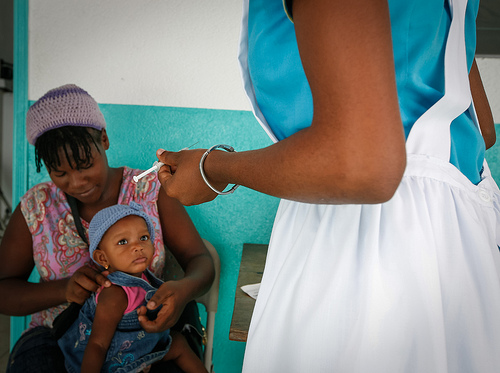27
Feb
February 27, 2013
 For many adopted children, prior to coming home to their new forever family, they may not have received proper medical care or the care provided was substandard. Whether adoptive parents are U.S., European or Canadian residents, the adopted child now has access to important medical testing, services, and treatments.
For many adopted children, prior to coming home to their new forever family, they may not have received proper medical care or the care provided was substandard. Whether adoptive parents are U.S., European or Canadian residents, the adopted child now has access to important medical testing, services, and treatments.Every child adopted internationally may be at risk for carrying viruses, bacteria, parasites, and other health concerns which may be common to their country of origin. This fact alone makes it extremely important that all adoptive parents bring their internationally adopted child to a physician who specializes in international medicine, a pediatrician who specializes in children adopted abroad or a physician who specializes in international infectious diseases. Taking your adopted child to a pediatrician who is not familiar with international health issues may not know what tests to perform on your child. An international adoption clinic will be able not only to address common health issues with your child but also the psychological impact and adjustment issues of coming to a new culture. International adoption clinics are well known in the adoption network and a valuable resource to adoptive parents.
Each country has its own common health issues and concerns that children are susceptible to. Many times an orphaned child is even more susceptible due to institutionalize care and the impoverished, unsanitary living conditions of that country. The following examples are not comprehensive and your chosen physician should advise you accordingly.
The clinic or physician who is examining your child should know the country you adopted from and the illnesses and diseases common to that country and area of the world. It is suggested that children adopted from impoverished countries such as the Democratic Republic of Congo and Haiti should be tested for lice, scabies and other skin conditions. Testing for TB, HIV, syphilis, hepatitis A, hepatitis B and hepatitis C are also recommended. Children coming from Eastern Europe, such as Bulgaria or Russia, where alcoholism and drug use are an issue, should be tested for blood-borne pathogens, sexually transmitted diseases as well as being evaluated for fetal alcohol syndrome. Children who have a history of malnutrition or have been in institutionalized care for extended periods of time should be tested for rickets and developmental delays. Lastly, all children adopted internationally should be tested for giardia as well as other parasites common to the gastro intestinal tract. A check for anemia and lead toxicity is recommended. Substantiate that immunizations have been done, as well as screen the child for vision and hearing. The recommended medical tests are dependent upon your child’s country of origin as well as the child’s pre-adoption background and living conditions.
There are many clinics and hospitals around the country that specialize in caring for and testing internationally adopted children. Why put your child at risk? Be sure your child has a comprehensive medical examination by a qualified international clinic and/or physician. After all we are blessed to have the medical resources here that your adopted child will benefit from.
References:
Photo Credit: Alex Proimos
For more information about MLJ Adoptions’ international adoption programs, please click here.
